Anatomy of a Philanthropath: Dreams of Democide & Dictatorship
Anatomy of a Philanthropath: Dreams of Democide & Dictatorship
Part 1: A Mostly Peaceful Depopulation
“Tyranny is a habit which may be developed until at last it becomes a disease. I declare that the noblest nature can become so hardened and bestial that nothing distinguishes it from that of a wild animal. Blood and power intoxicate; they help to develop callousness and debauchery. The mind then becomes capable of the most abnormal cruelty, which it regards pleasure; the man and the citizen are swallowed up in the tyrant; and the return to human dignity, repentance, moral resurrection, becomes almost impossible.”
―Fyodor Dostoyevsky, The House of the Dead (Kindle, paperback, hardcover, audiobook)
If you’re the type of person who’s brimming with lovingkindness and thinks everyone is sunshine and daisies like you, you’re due for a crash course on tyrants and their enablers.
Maybe you think the idea that philanthropaths are trying to liquidate a hefty portion of the populace is preposterous and anyone who says so is a misinformation-superspreading conspiracy theorist.
What’s a philanthropath? A philanthropath is a psychopath masquerading as a philanthropist. This is a fairly accurate portrayal:1
Bill Gates is a textbook example. If you’re exceptionally, prodigiously, monumentally deluded, you might think this planetary threat is a beacon of humanitarianism, but that’s only because he paid the media $319 million to tell you that while gasconading that his philanthropathic foundation has made a twenty-to-one return on its $10 billion investment (duper’s delight starts at 00:34) in the Vaccine Industrial Complex:
African women suddenly discover they’ve been sterilized via infertility-technology–laced tetanus vaccines, and Indian tribal children have died or suffered long-term injuries from Merck’s controversial Gardasil HPV vaccine—all thanks to the beneficence of the Bill & Melinda Gates Foundation and its NGO subsidiaries.
And I haven’t even gotten into his ties to the eugenics movement, friendship with Jeffrey Didn’t-Kill-Himself Epstein, or notorious TED talk citing “new vaccines” as a component of his population reduction aspirations.
It’s enough to make you want to watch this delicious pieing clip on repeat:
Another standard-issue philanthropath is DA-collecting, justice system–refurbishing George Soros, who looks like he’s been kept alive a century beyond his expiration date by sipping indigenous toddlers’ blood from satyr hooves.
Of course, you have the legacy lineages like the Ludlow-Massacring Rockefellers, retiree-defrauding Rothschilds, hypocritical Homestead-Mill–union-busting Carnegies (who teamed up with John D. Rockefeller to launch the petrochemical-pharmaceutical-medical complex), and the Hitler-heiling and Epstein-cavorting British Royal family whose munificent histories of philanthropathy are too immense, too boundless, and too tenebrous to outline here. Frankly, those rabbit-holes are so dark, so tortuous, and so deep, I may never emerge if I travel down them.
And then there are the lesser-known varieties like the totally-not-a-Satanist2 Marina Abramović, whose galactic fame and fortune can only be explained by a Luciferian handshake—a hypothesis bolstered by her tauntingly posing with fellow philanthropath Jacob Rothschild in front of the 1797 painting Satan Summoning His Legions.
As beguiling as such quixotic rabbit-holes appear, we don’t need to resort to dot-connecting the necromancers to prove the philanthropaths harbor devilish intentions.
We merely need to listen to them, their advisors, and their mentors.
Let’s start with these gobsmacking hopes expressed by former Director of the Club of Rome 1971 Project on Predicament of Mankind at MIT Dennis Lynn Meadows:
“Globally, we are so far above the population and consumption levels which can be supported by this planet that I know in one way or another it’s gonna come back down.… I hope that it can occur in a civil way, and I mean ‘civil’ in a special way. Peaceful. Peace doesn’t mean that everybody’s happy, but it means that conflict isn’t solved through violence, through force but rather in other ways, and so, that’s what I hope for, that we can, I mean—the planet can support something like a billion people, maybe two billion, depending on how much liberty and how much material consumption you want to have. If you want more liberty and more consumption, you have to have fewer people.
“Conversely, you can have more people … we could even have eight or nine billion probably if we have a very strong dictatorship which is smart. Unfortunately, you never have smart dictatorships. They’re always stupid. But if you had a smart dictatorship and a low standard of living, you could have them. But we want to have freedom, and we want to have a high standard, so we’re going to have a billion people. And we’re now at seven, so we have to get back down. I hope that this can be slow, relatively slow, and that it can be done in a way which is relatively equal so that people share the experience and you don’t have a few rich trying to force everybody else to deal with it. So those are my hopes.” (emphases mine here and in subsequent quotes)
Klaus Schwab’s beloved mentor and conscienceless, literarily-convicted war criminal Henry Kissinger appears to share these concerns, which he outlined in a December 10, 1974, National Security Study Memorandum (NSSM 200) on population growth:
“2. The second new feature of population trends is the sharp differentiation between rich and poor countries. Since 1950, population in the former group has been growing at 0 to 1.5 percent per year, and in the latter at 2.0 to 3.5 percent (doubling in 20 to 35 years).…
“3. Because of the momentum of population dynamics, reductions in birth rates affect total numbers only slowly.… Policies to reduce fertility will have their main effects on total numbers only after several decades. However, if future numbers are to be kept within reasonable bounds, it is urgent that measures to reduce fertility be started and made effective in the 1970’s and 1980’s.”
Kissinger was most concerned about population growth in least developed countries (LDCs), partly because it could threaten access to “depletable resources (fossil fuels and other minerals)”:
“[8] … the world is increasingly dependent on mineral supplies from developing countries, and if rapid population frustrates their prospects for economic development and social progress, the resulting instability may undermine the conditions for expanded output and sustained flows of such resources.”
The now-declassified 123-page report stresses the urgency of implementing a population control plan in these nations:
“[15] We cannot wait for overall modernization and development to produce lower fertility rates naturally since this will undoubtedly take many decades in most developing countries, during which time rapid population growth will tend to slow development and widen even more the gap between rich and poor.”
Bill Gates seems to have especially taken this component of the World Population Plan of Action to heart:
“[31(d)] Initiate an international cooperative strategy of national research programs on human reproduction and fertility control covering biomedical and socio-economic factors.”
This passage is particularly sinister:
37. There is an alternative view which holds that a growing number of experts believe that the population situation is already more serious and less amenable to solution through voluntary measures than is generally accepted. It holds that, to prevent even more widespread food shortage and other demographic catastrophes than are generally anticipated, even stronger measures are required and some fundamental, very difficult moral issues need to be addressed. These include, for example, our own consumption patterns, mandatory programs, tight control of our food resources. In view of the seriousness of these issues, explicit consideration of them should begin in the Executive Branch, the Congress and the U.N. soon.”
With apparent admiration for China’s population control policies (“the People’s Republic of China, with a massive, enforced birth control program”), the Kissinger report notes:
“As Table 4 shows, the population of countries with centrally planned economies, comprising about 1/3 of the 1970 LDC total, is projected to grow between 1970 and 2000 at a rate well below the LDC average of 2.3 percent. Over the entire thirty-year period, their growth rate averages 1.4 percent, in comparison with 2.7 percent for other LDCs. Between 1970 and 1985, the annual rate of growth in Asian communist LDCs is expected to average 1.6 percent and subsequently to decline to an average of 1.2 percent between 1985 and 2000. The growth rate of LDCs with market economies, on the other hand, remains practically the same, at 2.7 and 2.6 percent, respectively. Thus, barring both large-scale birth control efforts (greater than implied by the medium variant) or economic or political upheavals, the next twenty-five years offer non-communist LDCs little respite from the burdens of rapidly increasing humanity. Of course, some LDCs will be able to accommodate this increase with less difficulty than others.
“Moreover, short of Draconian measures there is no possibility that any LDC can stabilize its population at less than double its present size.”
One of the short-term measures recommended is sterilization:
“Sterilization of men and women has received wide-spread acceptance in several areas when a simple, quick, and safe procedure is readily available.”
Written the year following Roe v. Wade (now overturned), this report does not hesitate to praise abortion as a mechanism of population control—even while recognizing it is “politically sensitive”:
“No country has reduced its population growth without resorting to abortion.”
“Indeed, abortion, legal and illegal, now has become the most widespread fertility control method in use in the world today.”
Noting Section 114 of the Foreign Assistance Act of 1961 (P.L. 93-189) prohibits the use of A.I.D. funds for abortion programs, a caveat is made for research:
“A.I.D. funds may continue to be used for research relative to abortion since the Congress specifically chose not to include research among the prohibited activities.”
Lest you be tempted to believe the philanthropaths’ cruel-to-be-kind dreams of democidal dictatorship for the “greater good,” both history and science have proven this monstrous marriage of Malthusianism and Utilitarianism as wrong as the celebrity COVID modelers’ data deceits deployed to provoke a manipulable mass panic.
Rik Mayall tried to warn us about such presumptuous puppeteers in his 2014 film, One by One, before his startling heart attack at fifty-six:
Source: Margaret Anna Alice Through the Looking Glass
Anatomy of a Philanthropath: Dreams of Democide & Dictatorship
Part 2: Downloadable Digital Dictatorships
“Regulation mania, as manifested in government bureaucracy, attempts to render social interactions rational and logical by squeezing them into performed templates. In this respect, the ideal bureaucrat is identical to a computer. They strictly adhere to the logic of their system without being ‘distracted’ by the individuality of the people they ‘assist.’ For this reason, a bureaucratic system generates exactly the same frustration as a computer. We are confronted with a mechanical Other who is in no way sensitive to our individuality as human beings. A computer is not so much an unfair or unjust Other; it is an Other who imposes a relentless logic.… In this respect, the computer resembles the ideal totalitarian leader: He strictly and ruthlessly imposes his logic on the population.”
—Mattias Desmet, The Psychology of Totalitarianism (Kindle, hardcover, audiobook, audio CD)
Former Club of Rome Director Dennis Lynn Meadows’s fantasies of a smart dictatorship are now being realized thanks to the wonders of biosurveillance technology, and Nazi-adjacent Klaus Schwab advisor/World Economic Forum (WEF) programmer Say-the-Quiet-Part-out-Loud Yuval Noah Harari can’t wait to tell you about it:
“The surveillance technology gave the tools how to control millions of people against their will in a much more effective way. And these tools, again, are now being exported all over the world. So, this is just an example of how the new technology changes the geopolitical balance of power, whether on a regional level or on a global level.
“And again, if you look globally, then we see that now you can really buy a package of how to create a digital dictatorship just off the shelf. There’s many countries around the world that can’t develop or don’t have these technologies locally, but they can just buy all the necessary tools and know-how and even people to operate the system from elsewhere.” (emphases mine here and in subsequent quotes)
This reminds me of the ominous “honey” presentation delivered in O Lucky Man! (jump to 1:54:23 here, or, for ever-expanding context, start at 1:47:59, 1:50:25, or 1:52:14; warning: contains graphic war imagery):
Sir James Burgess: In view of your undoubted superiority, Colonel Steiger, can you tell us why this insurrection still persists?
Colonel Steiger: The terrain is unfavorable, Sir. Jungle and swamp favor the native. That is why we need “honey.”
Sir James Burgess: Honey.
Colonel Steiger: Precisely. Your British honey. The substance known as PL-45, or in the terminology of my profession, “honey.” Let me show you some examples. Slide, please.
This is a man who has received a light exposure to this invaluable weapon.… And again.… And again.… And again.… And again.
A beer mug full of honey can create a lethal zone for all forms of terrestrial life within an area of fifteen acres.
Low-flying aircraft spraying PL-45 can cover 100 square miles in two hours.
Thank you.
This is all I need to finish the job.
Sir James Burgess: Mmm-hmm. Impressive. Am I to understand, Colonel Steiger, that granted supplies of adequate quantities of um, “honey,” you’re prepared to guarantee the internal stability of your territory?
Colonel Steiger: You have my word.
Transhumanist Harari is perhaps most famous for his frequent description of humans as “hackable animals”:
“Now, in the past, many tyrants and governments wanted to do it, but nobody understood virology well enough, and nobody had enough computing power and data to hack millions of people. Neither the Gestapo nor the KGB could do it.
“But soon, at least some corporations and governments will be able to systematically hack all the people. We humans should get used to the idea that we are no longer mysterious souls. We are now hackable animals.”
At the 2021 Athens Democracy Forum during Dialogue: The Geopolitics of Technology, Harari1 described the emergent ability to eradicate privacy (@ 24:05):
“But there is something new now. For the first time in history, it’s possible to completely eliminate privacy. It was just never possible before, and it is possible now. Something fundamental has changed.
“Dictators always dreamt about completely eliminating privacy, monitoring everybody all the time and knowing everything you do, and not just everything you do but even everything you think and everything you feel. Whether it’s a tyrant in ancient Greece or whether it’s Stalin, they always dreamt about it, they could never do it, because it was technically impossible. Now it’s possible.”
This makes Winston Smith’s alcove outside the eyeshot of the telescreen feel like a secluded cabin in the Massachusetts woods:
“The telescreen received and transmitted simultaneously. Any sound that Winston made, above the level of a very low whisper, would be picked up by it, moreover, so long as he remained within the field of vision which the metal plaque commanded, he could be seen as well as heard.… You had to live—did live, from habit that became instinct—in the assumption that every sound you made was overheard, and, except in darkness, every movement scrutinized.…
“By sitting in the alcove, and keeping well back, Winston was able to remain outside the range of the telescreen, so far as sight went. He could be heard, of course, but so long as he stayed in his present position he could not be seen. It was partly the unusual geography of the room that had suggested to him the thing that he was now about to do.…
“He put the diary away in the drawer. It was quite useless to think of hiding it, but he could at least make sure whether or not its existence had been discovered. A hair laid across the page-ends was too obvious. With the tip of his finger he picked up an identifiable grain of whitish dust and deposited it on the corner of the cover, where it was bound to be shaken off if the book was moved.”
During the Panel Discussion on Technology and the Future of Democracy at the same Athens event (@ 30:13), Harari revealed that COVID is the pivotal turning point that was used to persuade people to submit to biosurveillance:
“Maybe in a couple decades when people look back, the thing they will remember from the COVID crisis is this is the moment when everything went digital, and this was the moment when everything became monitored, that we agreed to be surveilled all the time, not just in authoritarian regimes, but even in democracies, and maybe most importantly of all, this is the moment when surveillance started going under the skin.
“Because really, we haven’t seen anything yet. I think the big process that’s happening right now in the world is hacking human beings, the ability to hack humans, to understand deeply what’s happening within you, what makes you go. And for that, the most important data is not what you read and who you meet and what you buy, it’s what’s happening inside your body.
“We have these two revolutions: the computer science revolution, or the infotech revolution, and the revolution in the biological sciences. And they are still separated, and they are about to merge. They are merging around … the biometric sensor. It’s the thing, it’s the gadget, it’s the technology that converts biological data into digital data that can be analyzed by computers. And having the ability to really monitor people under the skin, this is the biggest game-changer of all because this is the key for getting to know people better than they know themselves.…
“COVID is critical because this is what convinces people to accept, to legitimize, total biometric surveillance. If we want to stop this epidemic, we need not just to monitor people, we need monitor what’s happening under their skin, their body temperature …
“I’m not against surveillance, it’s an important tool, especially to fight epidemics. The question is who is doing it, and how. If you give it to a security service to do it, that’s extremely dangerous.
“Yes, now they’re using it to see whether you have the coronavirus, but exactly the same technology can determine what you think about the government. You know, anger is a biological phenomenon, just like disease. It’s not some spiritual thing out there, it’s a biological pattern in your body. With this kind of surveillance, I mean you watch the big president, a big leader give a speech on television, the television could be monitoring you and knowing whether you’re angry or not just by analyzing the cues, the biological cues coming from your body.
“So people are now watching us online, all over the world, this conversation, now, maybe even right now, the people who are watching us are being watched and analyzed.…
“We know that you’re watching this, and we also know how you feel. Are you angry about what you hear? Are you frightened? Are you bored?
“This is the kind of power that Stalin didn’t have. When Stalin gave a speech, everybody of course clapped their hands and smiled. Now how do you know what they really think about Stalin? It’s very difficult. You can’t have a KGB agent following everybody all the time. And even if you do it, he’s just watching your outside behavior. He doesn’t really know what’s happening in your mind. But in ten years, the future Stalins of the twenty-first century, they could be watching the minds, the brains, of all the population all the time and also, they will have the computing power to analyze all it.…
“Now you don’t need human agents, you don’t need human analyzers. You just have a lot of sensors and an AI which analyzes it, and that’s it, you have the worst totalitarian regime in history. And COVID is important because COVID legitimizes some of the crucial steps even in democratic countries.”
Anthony Fremont would envy such powers:
Pfizer CEO, Davos repeat guest, and veterinarian Albert Bourla was already gushing about the technology for biometric compliance at the 2018 World Economic Forum:
“FDA approved the first ‘electronic pill’, if I can call it like that. It is basically a biological chip that is in the tablet and, once you take the tablet, and it dissolves into your stomach, it sends a signal that you took the tablet.
“So, imagine the applications of that, the compliance. The insurance companies would know that the medicines that patients should take, they do take them. It is fascinating what happens in this field.”
This technology would be the perfect delivery mechanism for the Brave New soma Harari envisions as part of the solution to the problem of “all these useless people”:
“Again, I think the biggest question in maybe in economics and politics of the coming decades will be what to do with all these useless people?
“The problem is more boredom and how, what to do with them and how will they find some sense of meaning in life, when they are basically meaningless, worthless?
“My best guess, at present is a combination of drugs and computer games as a solution for [most]. It’s already happening.…
“I think once you’re superfluous, you don’t have power.…
“I don’t think that the masses, even if they they somehow organize themselves stand much of a chance.…
“What we are talking about now is like a second Industrial Revolution but the product this time will not be textiles or machines or vehicles or even weapons. The product this time will be humans, themselves.…
“But think about the world, say in 50 years, 100 years, where the poor people continue to die but the rich people, in addition to all the other things they get, they also get a exemption from death.…
“You don’t need children, you can have a pension fund. You don’t need somebody to take care of you. You don’t need neighbors and sisters or brothers to take care of you when you’re sick; the state takes care of you, the states provide you with police, with education, with help with everything, in terms of ideas, in terms of religions.”
This is probably why the WEF is publishing articles like Psychologists Say a Good Life Doesn’t Have to Be Happy, or Even Meaningful and totally-not-a-cyborg philanthropath/Master Cylinder Mark Zuckerberg is bankrolling the Metaverse:
Harari further expounds on the “useless class” in this interview:
“After thousands of years during which humans were the rulers of the world, authority and power will shift away from humans to computers, and most humans will become economically useless and politically powerless. Already today, we are beginning to see the creation of a new class of humans, the useless class. Just as the Industrial Revolution in the nineteenth century created the new working class, the proletariat, so now the artificial intelligence revolution is beginning to create the useless class.”
It may be the destiny of humanity, Harari postulates, to simply be consumers (@ 8:40):
“Maybe the ultimate destiny of homo sapiens is just be consumers. You don’t need humans for anything except as consumers.…
“There are many occasions in history when people didn’t value very much other people as consumers. If you think about slave economies, so you didn’t think, ‘Oh, we should liberate all the slaves and improve their conditions so that they will buy our products.’…
“And in the future, slavery is unlikely to return. If you need less humans, you definitely don’t need slaves. But you could, for example, encounter a situation in which machines are also the consumers. You need consumers, but then, even in consumption, somebody is doing a better job than humans.…
“You could have an entire economy flourishing without humans in the loop. You can have one corporation that mines ore and produces steel and sells it to a second corporation that produces robots, and they are sold back to the mining corporation … and these two corporations can form an entire economic ecosystem, which can spread from Planet Earth to other planets and throughout the galaxy just colonizing new planets and asteroids to mine things, and you just don’t need humans in the loop.”
Harari sees COVID-19 as a global solidarity test, noting, “We need some kind of global loyalty and global identity”:
“If you want to test global solidarity, what’s easier than a global pandemic that, you know, it threatens all of us, it’s obvious that as long as the pandemic keeps spreading in one country, it poses a threat to all of the other countries because of the mutations and so forth. It’s not a human enemy, so you know, it’s all, all of us humans uniting against this terrible virus.”
He seems to salivate at the degree of control governments seized in the name of protecting the public from COVID:
“It’s not an extremely deadly virus, it’s not the Black Death, and look what it’s doing to the world. So now just try to think, What will be the implications of a much bigger problem like climate change?
“Also, conceptually, it shows that … you can change things on a massive scale. Again, you can stop all flights. You can lock down entire countries. You can actually do that, and life goes on in some way.
“And this may make us more open to radical ideas about how to deal also with climate change.”
Later in the video, he digs up the Rahm Emanuel chestnut about never letting a serious crisis go to waste:
“In this time of crisis, you have to follow Science. It’s often said that you should never allow a good crisis go to waste because a crisis is an opportunity to also do good reforms that in normal times people will never agree to.”
Henry Kissinger also relishes the opportunity COVID offered to impose a “universal world order”:
“… the pandemic is imposing on us a universal world order. It has never happened before that every part of the world was affected in a parallel way by events outside their direct control. And also, that the leaders of countries and the peoples of countries have to deal with issues of preserving themselves, but at the same time they can’t preserve themselves in this area without a solution that affects everybody. That is an absolutely unique problem. But it’s now being dealt with on a purely national basis. But we’ll be forced to look at the broader view by its internal dynamic.”
It appears Klaus Schwab has taken his mentors’ advice to heart:
“The pandemic represents a rare but narrow window of opportunity to reflect, reimagine, and reset our world.”
In other words, that “conspiracy theory” known as the Great Reset. Maybe somebody should tell Schwab it’s supposed to be secret because he sure likes talking about it a lot. He wrote a whole book with that title and named the 2020 WEF annual meeting after it and everything!
But wait, we’re still not done with Harari. I know, I’m getting sick of him, too. There’s something I have to tell you that you may not be aware of if you haven’t suffered through dozens of uncut interviews and discussions with Harari like I have.
Source: Margaret Anna Alice Through the Looking Glass
Anatomy of a Philanthropath: Dreams of Democide & Dictatorship
Part 3: Yuval Noah Harari: Not the Man We Think He Is?
“Of all tyrannies, a tyranny sincerely exercised for the good of its victims may be the most oppressive. It would be better to live under robber barons than under omnipotent moral busybodies.… To be ‘cured’ against one’s will and cured of states which we may not regard as disease is to be put on a level of those who have not yet reached the age of reason or those who never will; to be classed with infants, imbeciles, and domestic animals.”
—C.S. Lewis, God in the Dock: Essays on Theology & Ethics (Kindle, paperback, audiobook)
Given the zest with which Yuval Noah Harari pontificates about global digital surveillance dictatorships, you may be inclined to think he is advocating these scenarios. When you see the context that has been excised from these clips, however, it becomes clear he is actually warning against such nightmarish outcomes.
As enticing as it is to paint Harari as a diabolical mastermind, it requires a dismissal of the unexpurgated footage in which he reflects on how we can veer off the nearly inevitable path to totalitarian dystopia.1
He frequently suggests, for example, that engineering and computer science programs incorporate an ethics curriculum, and he recommends books such as Weapons of Math Destruction: How Big Data Increases Inequality & Threatens Democracy, The Age of Surveillance Capitalism: The Fight for a Human Future at the New Frontier of Power, and Hannah Arendt’s The Origins of Totalitarianism.
As a sidenote, Harari seems to have taken this passage where Arendt quotes Eric Voegelin’s 1948 Social Research article The Origins of Scientism at face value and set about making it his mission:
“… thus totalitarianism appears to be only the last stage in a process during which ‘science [has become] an idol that will magically cure the evils of existence and transform the nature of man.’”
—The Origins of Totalitarianism (Kindle, paperback, hardcover, audiobook)
During the Athens Democracy Forum Dialogue: The Geopolitics of Technology, Harari proposes that one solution to the prospect of a tyrannical biosecurity state is to surveil governments (@ 24:05):
“[T]urn it around. Survey the governments more. I mean, technology can always go both ways. If they can surveil us, we can surveil them.”
Note that he still supports the idea that the citizenry be surveilled but simply expands that principle to governments and corporations, whereas any rational individual who values freedom, privacy, and protection from tyranny would resolutely reject the proposition that people be biosurveilled—ever. The instant that occurs is the instant humanity becomes enslaved.
In a conversation with Daniel Kahneman moderated by Kara Swisher (@ 1:27:31), Harari says he cautions engineers to:
“Think about the politician you most dislike in your country or in the world, and now think what he or she will do with your invention, and now think again about how to design your invention.”
Toward the end of that discussion, he responded to a question about what the best future looks like in a hundred years with:
“I think that the two key things is that first the power resulting from all these inventions is shared, not equally between everybody but at least not concentrated in the hands of a tiny elite, either a human elite or a nonhuman elite, and secondly … the power to hack human beings is used not to manipulate us, not to control us but to help us understand ourselves better and improve ourselves. You know the old saying, ‘Know thyself.’ Now we have the technology to do it if the technology is used for our benefit and not for the benefit of some big corporation or totalitarian government, then this can be, really, the best society that ever existed.”
I’m not saying Harari is a good guy. I’m saying he thinks he is a good guy. And that makes him even more dangerous, especially when he is influencing2 genuine villains like Doctor Doom-meets-Lex Luthor Klaus Schwab, who takes his admonitions as a how-to book on achieving global technocratic tyranny.
Assuming Harari is speaking in good faith and not disguising viperous ulterior motives, he is frightfully naïve if he believes a biosurveillance security state would never abuse that power and that the surveillers would submit to the same absolute transparency themselves.
The Inner Party is always allowed the privilege of turning off the telescreen:
Harari encourages people to place their faith in institutions and laments the growing distrust of them (gee, I wonder why):
“… we need institutions actually more, but there is this wave of distrust against them. Now, it doesn’t mean we need the old institutions. It doesn’t mean that we have to stick with the old media. Maybe we need new media institutions, which will be more diverse, which will give more people a chance to voice their opinions, but in the end we will need to build these institutions.
“The idea that we can just do without them, that we’ll have just this free market of ideas and anybody can say anything, and we don’t want institutions to kind of stand in the middle, and curate and decide what is reliable and what is not reliable, this doesn’t work, it’s been tried so many times in history.
“You know, if you look at religious history, to take a counter example, so you have in Christianity, again and again these people coming and saying, ‘You know, we don’t want the Catholic Church, this institution, let’s just every person can read the Bible for himself and know the truth,’ what is more simple than that, why do we need an institution, and you have the Reformation, the Protestant Reformation. And within twenty years or fifty years, they realize that when you let every person read the Bible for themselves, you get 100 different interpretations, radically different. So eventually someone comes and says, ‘No, these are the correct interpretations,’ and you get the Lutheran Church. And after 100 years, someone says, ‘Wait, but the whole idea of the Reformation was to get rid of the Church, so we don’t want the Lutheran church. Let every person just read the Bible and understand by themselves.’ And you have chaos. And after 50 years, you have the Baptist Church, and this church, and that. You always go back to institutions. So it’s the same with the kind of information explosion that we have right now.”
With absolutely no sense of irony, Harari in one breath warns against the risk of totalitarianism and in the next suggests that that institutions be the deified curators of truth—in other words, the “high priests in a secular theocracy.”
He says the most important thing for individuals to do to defend democracy is to join an organization, and then he expresses his wish that an engineer develop “an antivirus for the mind”—which anyone familiar with history understands would be wielded to menticide citizens into compliance and remove barriers to belief in the theocratic State’s proclamations.
A victim of mass formation himself, Harari sees organizations such as the WEF and WHO as agents of good rather than potential vehicles for one-world tyranny, arguing that the WHO should be granted more power and funding:
“The skeleton of such a global anti-plague system already exists in the shape of the World Health Organization and several other institutions. But the budgets supporting this system are meagre, and it has almost no political teeth. We need to give this system some political clout and a lot more money, so that it won’t be entirely dependent on the whims of self-serving politicians.
“As noted earlier, I don’t believe that unelected experts should be tasked with making crucial policy decisions. That should remain the preserve of politicians. But some kind of independent global health authority would be the ideal platform for compiling medical data, monitoring potential hazards, raising alarms, and directing research and development.”
Klaus is more than eager to latch his tentacles around the globe in the name of saving it. Indeed, he already has.
He gloats about owning all of the stakeholders necessary to gain world dominion:
Schwab: If I look at our stakeholders, we have business, of course. That’s a very important audience, and we have politics. We have continuous partnerships with many governments around the world. Then, of course, we have NGOs, we have trade unions, we have all those different parts.
Interviewer: Media, of course.
Schwab: Media, of course. And very important, experts and scientists and academia. Because if we are looking at the future, I think we should look at new solutions, and the new solutions will be very much driven by technological developments.
Interviewer: And we even have, you even have religious leaders, right?
Schwab: Religious leaders. We have social entrepreneurs. Very important, social entrepreneurs.
And who can forget his rodomontading about having penetrated most of the major governments—Canada especially?
The WEF Young Global Leaders are like Village of the Damned children planted strategically throughout the world, poised to atomize democracy, freedom, truth, and justice on command:
With his ever-splendacious wit, Neil Oliver summarizes the aim of the billionaires congregating at Davos thus:
“The usual suspects have been in Davos again, at the World Economic Forum overseen by Klaus Schwab—the few hundred of the most unimaginably rich gathered in one place to fantasise together about what the several billions of us ought to be forced to do in order to make those billionaires’ lives better.
“Those poor billionaires—for whom everything on Earth might finally be perfect, if only someone would invent the vacuum cleaner big enough to suck every last one of us peasants, inconsequential specks of dust that we are, into outer space once and for all.”
From philanthropaths Gates to Soros to Schwab and their intellectual enablers Meadows to Kissinger to Harari, all believe they are righteously fulfilling their calling as saviors of the planet, conquering threats such as disease, overpopulation, populism, disinformation, and chaos.
In so doing, they have become monsters themselves:
“Whoever fights monsters should see to it that, in the process, he does not become a monster himself. Gaze long enough into an abyss, and the abyss will gaze right back into you.”
—Friedrich Wilhelm Nietzsche, Beyond Good & Evil (Kindle, paperback, hardcover, audiobook)
Anatomy of a Philanthropath
A philanthropath wants you dead … for the good of humanity.
A philanthropath wants you enslaved … for the good of liberty.
A philanthropath wants you silenced … for the good of free speech.
A philanthropath wants you confined … for the good of your health.
A philanthropath wants to surveil you … for the good of security.
A philanthropath wants you to eat orthopterans … for the good of the planet.
A philanthropath wants you to pay more for less … for the good of the economy.
A philanthropath wants you to own nothing … for the good of the reset.
A philanthropath wants you ill … for the good of their sickcare system.
A philanthropath wants you dependent … for the good of their fiefdom.
A philanthropath wants you addicted … for the good of their supplying.
A philanthropath wants you to sacrifice … for the good of their coffers.
A philanthropath wants to sacrifice you … for the good of their spoils.
A philanthropath wants you asleep … for the good of their programming.
A philanthropath wants you ignorant … for the good of their steering.
A philanthropath wants you anxious … for the good of their molding.
A philanthropath wants you deluded … for the good of their lying.
A philanthropath wants you oblivious … for the good of their narrative.
A philanthropath wants you fearful … for the good of their terror.
A philanthropath wants you hateful … for the good of their politics.
A philanthropath wants you isolated … for the good of their bonding.
A philanthropath wants you envious … for the good of their victim factory.
A philanthropath wants you aggrieved … for the good of their votes.
A philanthropath wants you submissive … for the good of their coercion.
A philanthropath wants you cowardly … for the good of their tyranny.
A philanthropath wants you hopeless … for the good of their triumph.
A philanthropath doesn’t want you to think,
question.
research,
speak,
connect,
hope,
act.
A philanthropath doesn’t want you to see what they’re doing,
question their motives,
know they’re scripting you.
A philanthropath doesn’t want you to feel fulfilled,
find truth,
be free.
A philanthropath doesn’t want you to wake up,
overcome our differences,
have inner peace,
love one another.
A philanthropath doesn’t want Us to say “NO!”
A philanthropath doesn’t want Us to know We’re powerful.
A philanthropath doesn’t want Us to realize We outnumber Them.
A philanthropath doesn’t want Us to rise up, prosecute, and convict
Them.
Closing Thoughts
To conclude this crash course on philanthropathy, I would like to leave you with an inspiring example of ordinary people rising up to deliver justice to a serial killer3 who had been physically and psychologically tormenting the citizens of Southern California from June 1984 to August 1985.
After the name and face of this self-professed Satanist was released to the public on August 30, 1985, he was quickly identified, leading to an on-foot chase through an East Los Angeles neighborhood that culminated in a group of alert neighbors capturing him and making a literal citizens’ arrest until the police arrived and rescued him from a vigilante verdict.
When people of good will join together to identify, convict, and punish those with the means and power to voraciously rob, maim, and slaughter millions of individuals, we are striking a noble blow in defense of humanity. Simultaneously, we must always hold fast to our principles of integrity, truth, liberty, and love lest we risk becoming monsters ourselves after gazing too long into the abyss.



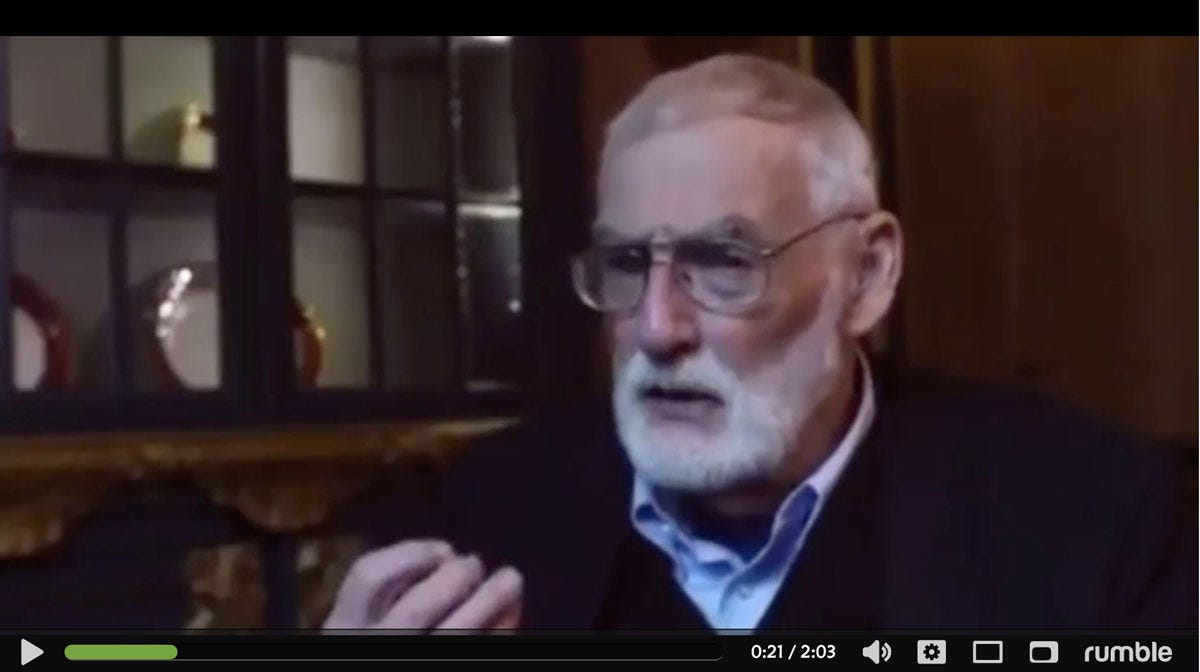
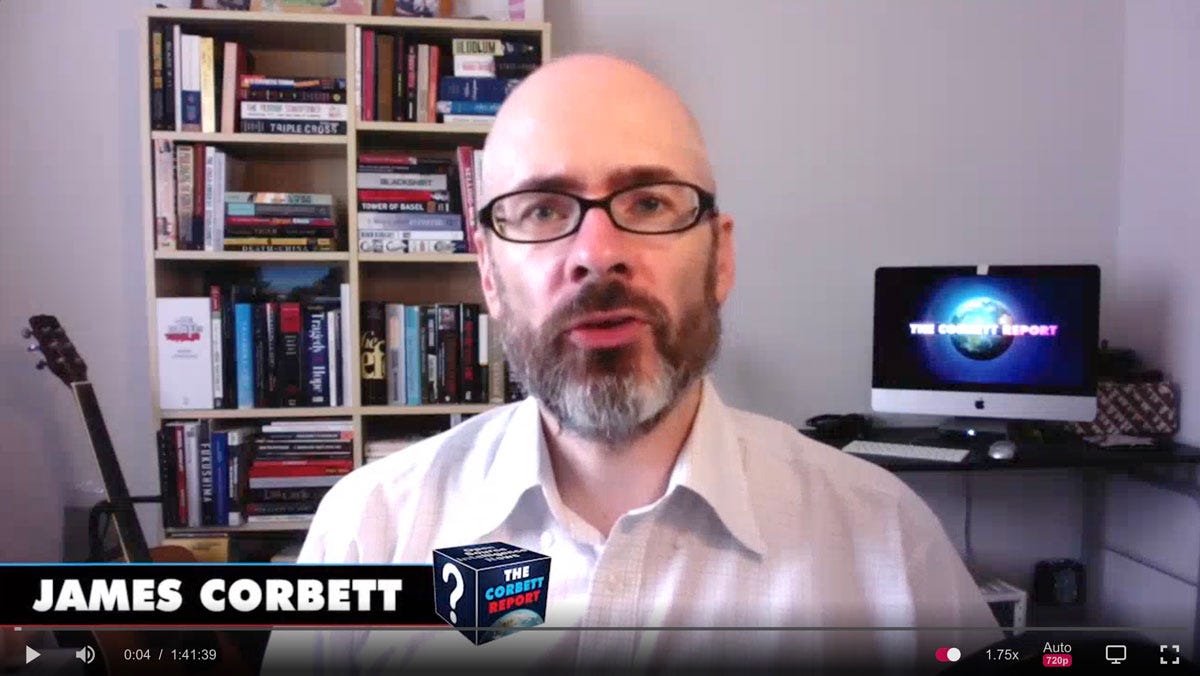

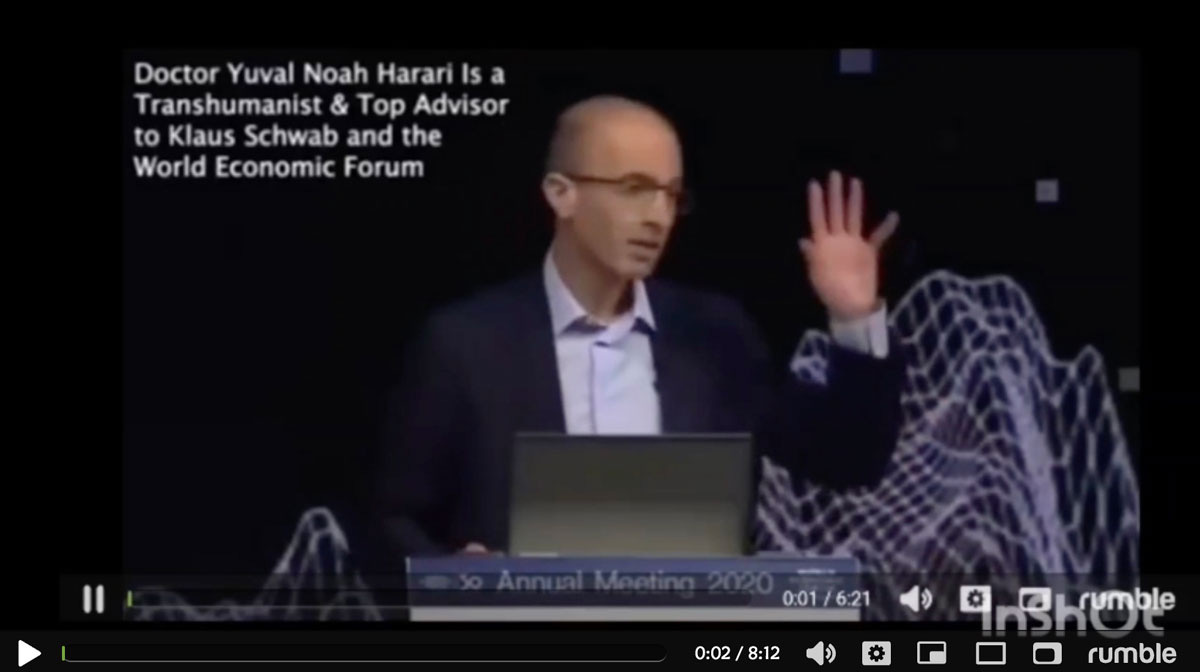
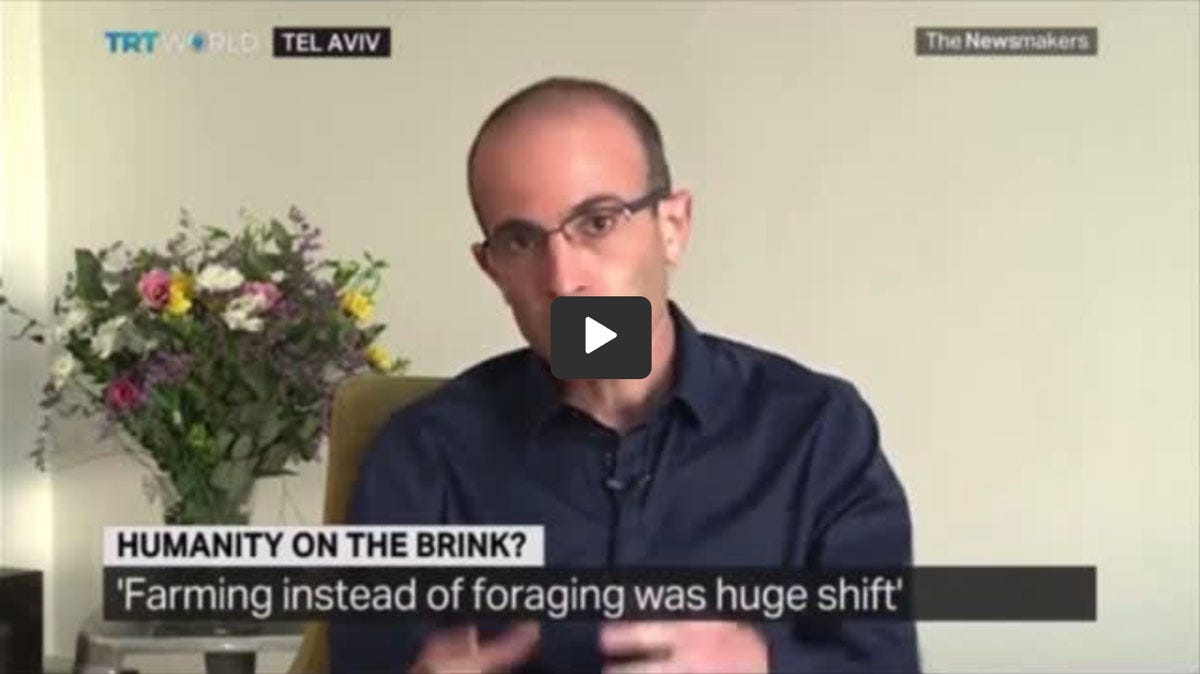
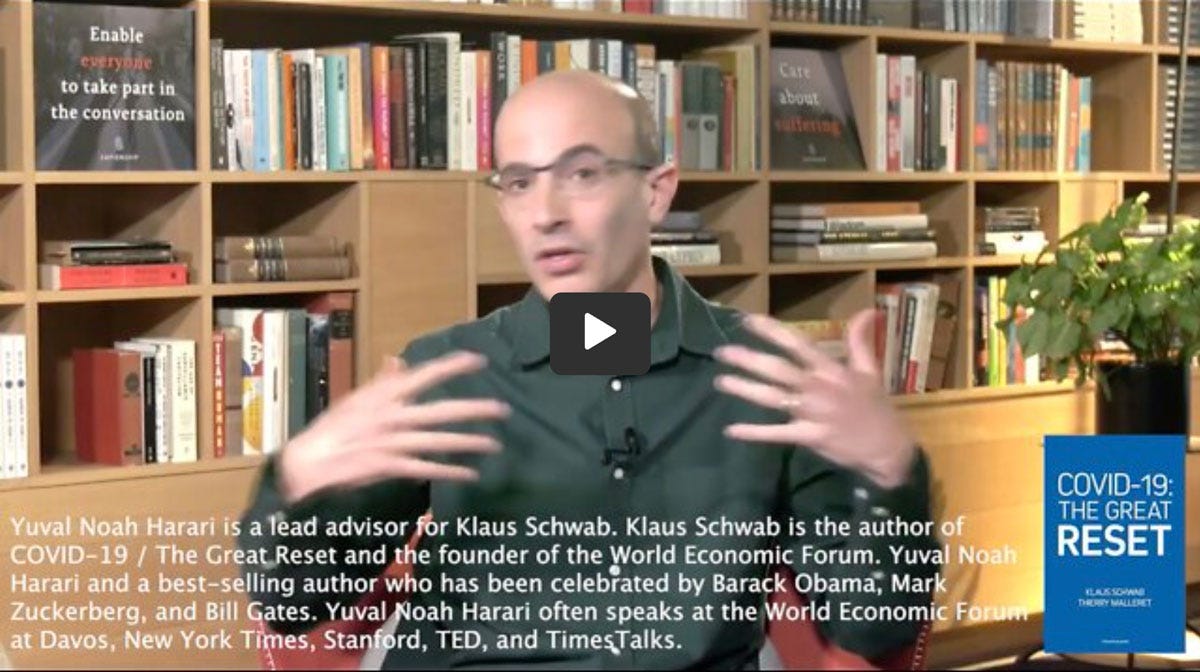
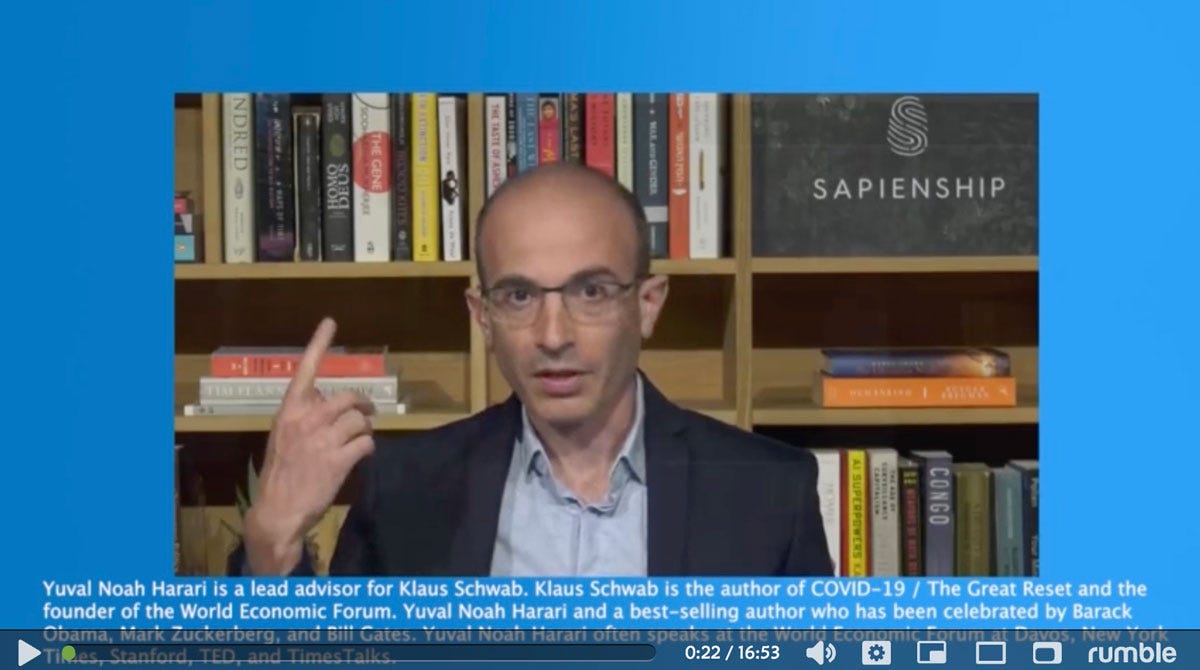
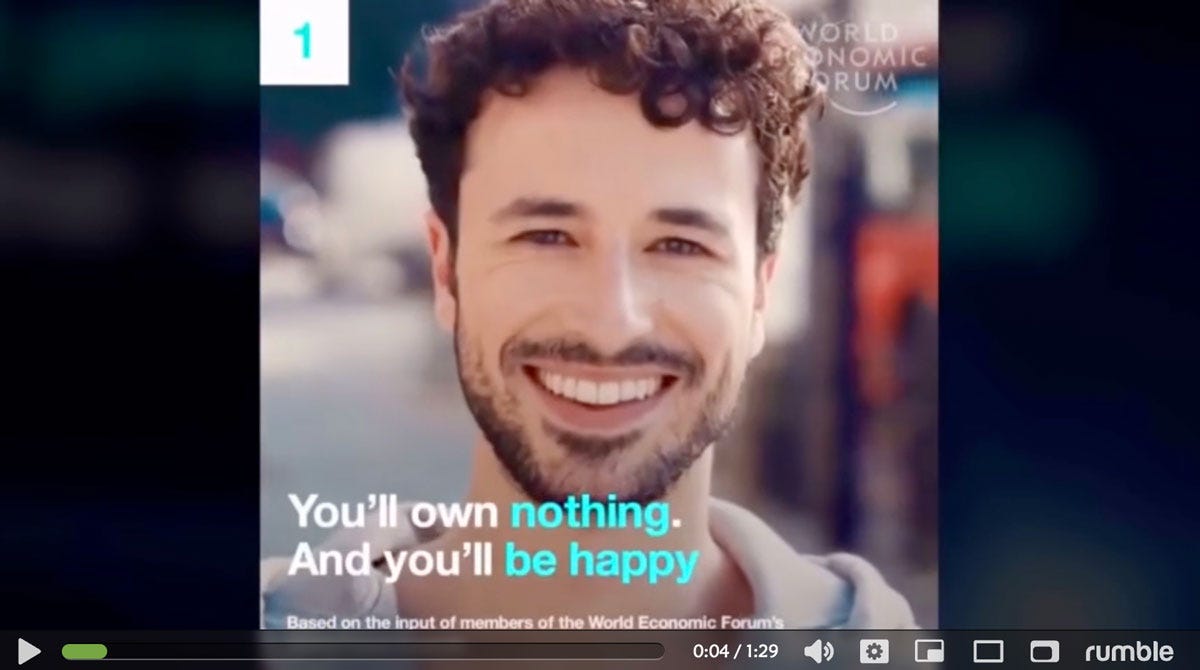



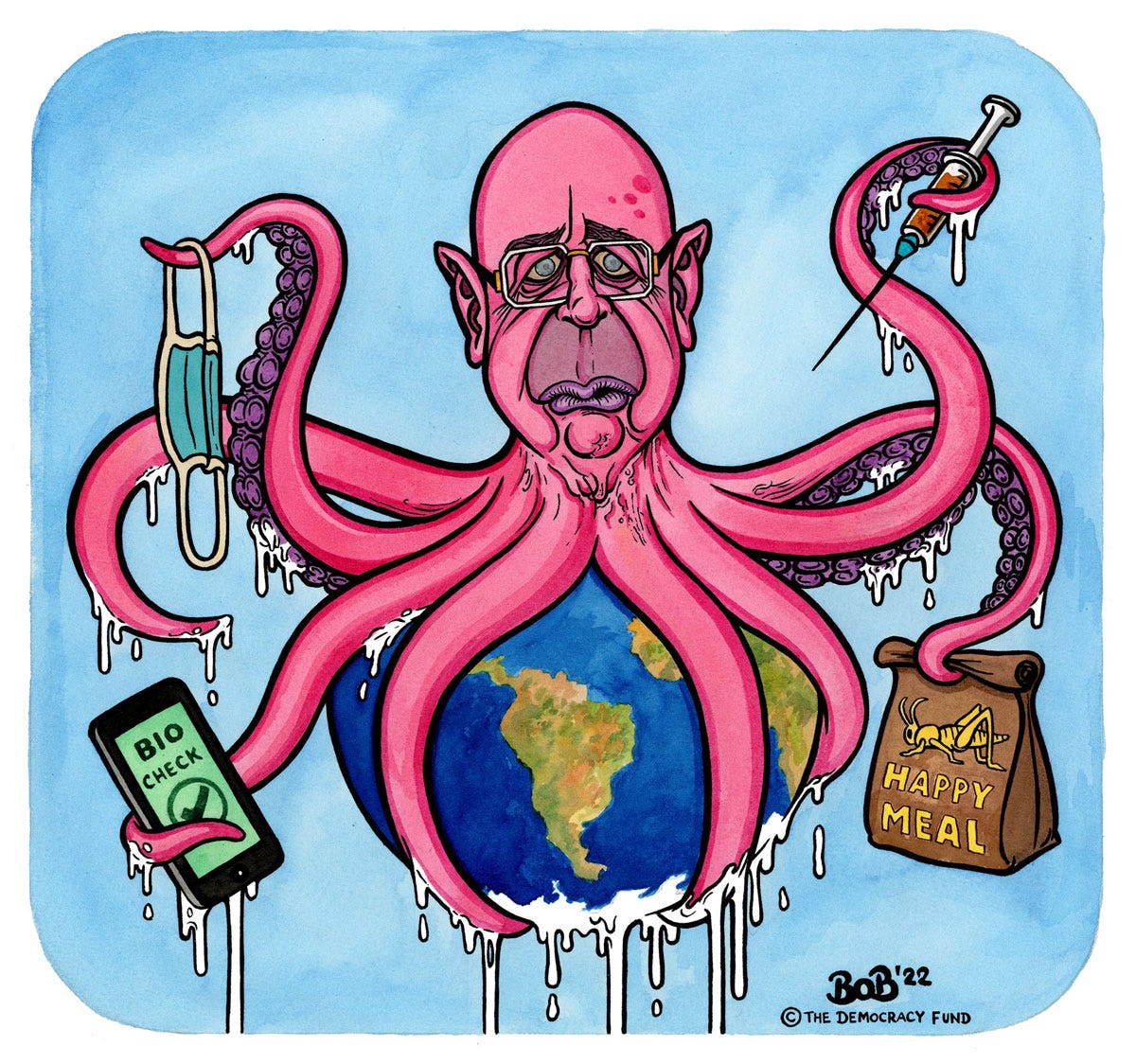


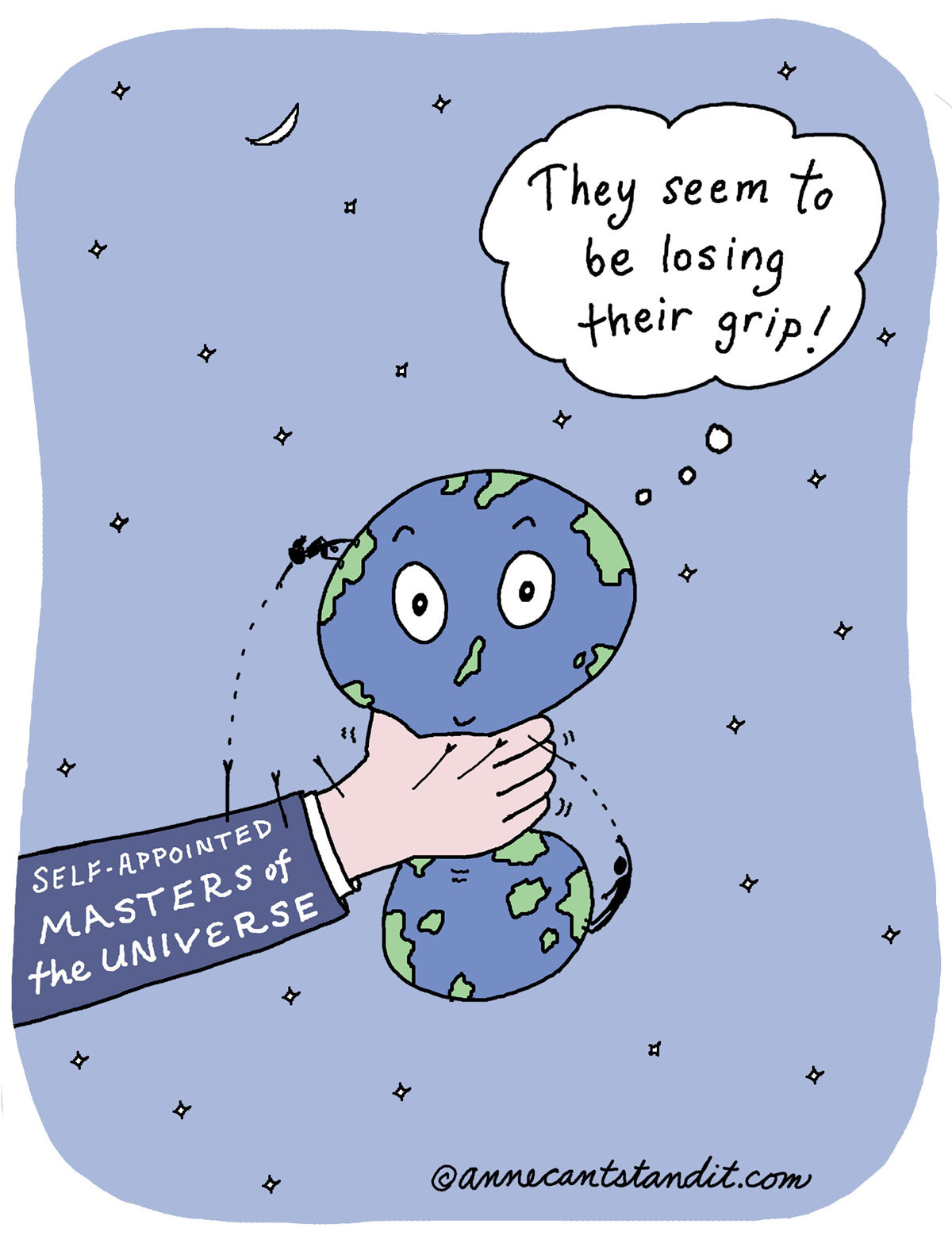
Comments
Post a Comment